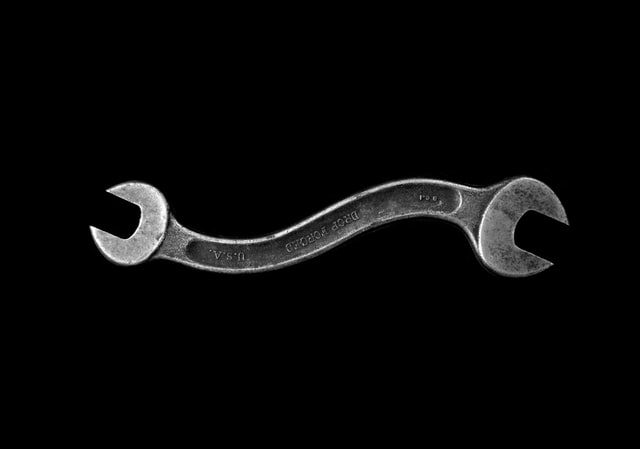
People all around the world are suffering from touch deprivation. For many, this is an unfortunate side-effect of safety and saving lives. It may not seem like such a big issue. The last 2 years of this pandemic have made it seem almost dangerous to be near others. Touch could lead to Covid. Covid could lead to death. Therefore, touch = death. This means the absence of touch can prevent death, or so it has been reasoned.
The absence of touch can lead to remarkably dysfunctional mindsets. Take for instance the blistering study conducted on touch-starved orphans in Romania, which was overseen by scientists from Harvard, Tulane, and the University of Maryland in early 2000. The children were followed by a panel of experts for 14 years to observe and understand the lasting impact of touch deprivation.
There’s also a widely-known study conducted by psychologist Harry Harlow at the University of Wisconsin in the 1950s, in which rhesus monkeys were given 2 surrogate “mothers” made from wire. One of these surrogate “mothers” was coated with fur. The conclusion of this study found that the surrogate mothers coated with fur provided enough sensory stimulation for the rhesus monkeys to maintain a healthy sense of belonging.
The conclusions presented by these, and various other studies, indicate that touch or sensory deprivation can lead to debilitating mental, emotional, and social behaviors. In many instances, the damage done by touch and sensory deprivation could not be corrected.
Over the last 2 years along, countless studies have been conducted in response to social distancing, isolation, and quarantine. The effects are alarming. Study after study demonstrates that human beings suffer greatly from the absence of closeness to others. And this makes sense, we are communal and tribal creatures who depend greatly upon the physical connection of another.
To put it bluntly, humans are set to move toward a touch-phobic society if we don’t do something to correct the absence of sensory and physical stimulation. And although many pockets of America are slowly and cautiously returning to “normal,” the effects of the past 2 years will no doubt play a big part in the collective healing of our country and our world.
Touch-Deprived
I have advised many clients over the past 2 years who all echo the same complaints about a touch-deprived relationship. “My wife flinches when I put my hands around her waist while she is cooking.” “My fiancé always says, ‘don’t touch me!’ whenever a conflict arises.” “If I touch my wife in bed, she immediately clams up and refuses to respond to my advances. She tells me that I am misogynistic, and I have no respect for her body.” “I worry if I will ever be allowed to hug my grandparents again.” “I miss the physical closeness I once shared with my friends and family before Covid.” “I haven’t hugged or kissed anyone in over a year, I feel like I am shrinking away from reality.”
Put simply, touch deprivation is the lack of or denial of the necessity of physical, sensory stimulation. Interruption of physical intimacy within a relationship. It was the plague of the plague during the heightened introduction of Covid in the United States.
Touch Depletion
On another side, however, there is an equally overwhelming conflict with touch depletion. A simple scroll of the TikTok will show you thousands upon thousands of video complaints broadcasted by women who no longer find a use for touch or physical intimacy because it violates their body and their mind. One of the uploads really caught my attention. A mother explains that her body has not belonged to her for the entirety of her motherhood. What ends up happening is that because her body belongs to the children, she has no more space to share her body with her husband. She feels as if she has lost her body and that denying her husband’s touch gives her a sense of control.
In another scenario, a client of mine was dealing with her sexual abuse trauma coming to the surface after each one of her pregnancies. She found that each time she reestablished physical intimacy with her partner, she would become pregnant and then lose all sense of control over her body. Pregnancy and delivery reminded her of the rape she suffered a decade before. Each time she gave her body to her husband, her body was then surrendered to pregnancy. After each child, she would have to relearn how to trust her body and her husband, in hopes that it would not be dominated by another pregnancy. Essentially, it would be not dominated by painful consequences.
She began withholding sex as a means to control agency over her body. She took engagement of touch as a sign of touch leading to sex. She began rejecting her husband’s touches out of fear. Sex= pregnancy= trauma. Her husband suffered immensely from touch deprivation while she reeled with touch depletion.
Women tend to withhold sex as a way to maintain power and control. For women, much of our emotional experiences are also physical. As a mother of 5, I can relate to the sense of feeling as if my body has been given for the sake and sacrifice of a life. Throughout the day, my children violate boundaries around my body. When my twins want kisses and cuddles, I am not always a willing participant. And although my children exhaust me from time to time, projecting that exhaustion onto my husband won’t resolve my feelings of exhaustion brought on by the children.
I also live in the modern world. I recognize that too many people violate the bodies of women with no regard for the human under the flesh. Many people believe sex is about power. I understand that not all touch is welcomed. I was sexually assaulted at 16 and I know all too well how devastating the violation of bodily touch can be. If one does not choose to sacrifice her body, she essentially feels violated and victimized. This can have a catastrophic effect on how she relates to and engages in, her sexual relationships in the future.
I can also relate to the behaviors exhibited by depleted mothers in intimacy-interrupted and touchless relationships. It’s difficult to articulate the ever-changing emotional states of motherhood. It’s difficult to explain to our partners that most of the time, we recognize that our thoughts are of our own doing, and we often listen to the lies of our egos. It’s hard to desire sex and sleep at the same time and let sleep win over. It’s difficult to surrender to the present when we have so much to do tomorrow, and our minds want to categorize and prioritize tasks rather than let our spouses play with our tits. It’s also a challenge to change my mind and rethink my desires for intimacy in a world that suggests withholding sex is the best option. Withholding sex is how women can take their power back, it has been said. This is how you withdraw from the touch depletion. Women are up against a lot of toxic messaging that validates victimhood over victorious flexibility.
And on the other side of the dynamic, I can relate to touch deprivation. It’s alienating and anxiety-inducing. The thought of not being wanted, the thought of being rejected, the thought that my touch harasses another more than it heals—it can all be entirely demoralizing. Often, men suffer more from this lack of touch. And much of this deprivation arises during the shifting from manhood to fatherhood. Many men have reported that they feel like they are irrelevant to the parentage, or that they fail to live up to expectations of their wife, and out of fear of disappointment and rejection, they withdraw in other ways, often domestically.
While I can relate to and fully understand the feelings of touch depletion and touch deprivation; I worry about our inability to adapt to the ever-changing environment we choose for ourselves. There is a lot to be said about taking accountability for the roles we choose for ourselves.
Adaptation
The inability to adapt stems from our inability to take personal accountability. Over the last decade or so, it has become increasingly appropriate to not take accountability. More and more, we can easily observe the scapegoat mentality gaining momentum, where shame and blame have become the tools of choice. It seems nobody wants any corrective encouragement or resources to resolve conflict. This idea of blaming someone else and asking them to take ownership of my independent feelings, while tragic and ineffective, is the crème de la crème of conflict resolution. Taking responsibility for one’s own actions and one’s own feelings is taboo. It is easier to admit someone else has power over your emotions than it is to admit you may have been reactive rather than proactive. Even more difficult is admitting that you misinterpreted the other or that you weren’t listening to what they were saying because you were too busy planning your rebuttal. We cannot stand to be wrong or admit fault. It is better to point the finger at someone else.
This process doesn’t benefit intimate relationships that demand our attention and energy. The process of scapegoating and self-exemption doesn’t help us resolve conflicts or maturely address complaints and concerns. It perpetuates a cycle of blame and shame and then we end up fighting about the same things, over and over.
We must opt for more accountable and adaptable processes that help our relationships evolve. This begins with acknowledging that our roles have changed, our responsibilities have increased, and that we need an update to the system for optimum performance.
When we shift from the partner/spouse role to the mother/father role, we must accept our own responsibility in making a choice to act in this role. Pregnancies are almost a year long. This gives us plenty of time to own the first choice we make, and that is to bring another life into the world. To assume that won’t change anything about the existing relationship dynamic is ignorant. We know better. Another person in the middle of a relationship will undoubtedly change everything. Acceptance of that will allow us to flow into the next cycle of change, such as learning to adapt to the shift in the role. And, learning to maintain the preexisting relationships and integrating those relationships with the new one, the parent-child relationship.
Parenthood doesn’t break us, it bends us.
What if mothers look at motherhood as though it was bending our bodies and minds, not breaking them? What if we looked through a lens of flexibility rather than force? Isn’t motherhood a helpful preparation for adaption and resilience building? We do learn a lot from giving birth. We learn about our limitations, and we learn about our skills. We surprise ourselves with what we can do in a day with a baby on our hip. The changes that occur to our body, our sleep schedule, and our libido can be scary and shocking, yes. We may want to withdraw from engagements that remind us of that. We may even reduce our availability to intimacy out of fear. But it doesn’t help us develop resiliency and it doesn’t aid us in our adaptability.
What if fathers look at fatherhood and the shift in the husband’s role as though it was bending their expectation of reality? Often men don’t always experience a change to their emotional, physical, or social dimensions of manhood. In many regards, men are left unscathed by the changes of parenthood. And many women resent this. Such is why it is so easy to withhold the one thing women believe men “need”—sex. This shifting dynamic unfolds new relationships developing responsibilities between father and child. But it also unfolds new responsibilities to his partner, many that he might not even be aware.
Men and women experience changes within relationships and with the onset of parenthood. Rather than seeing these changes as threats to our identity or to our comfort zones, we can open our hands and minds to receiving the change of circumstance as increased flexibility in life.
We must ask ourselves questions about the boundaries we have structured during times of change. Could we have made flimsy fences in one part of our life and put up a block against the entrance to other parts of our life? Maybe we spend too much time with the children and not enough time for ourselves or our partners. Maybe we need to adjust our boundaries, tighten up some parameters, and loosen the restrictions on others. The adaptation follows change, and the development of adaptability is crucial to an evolving relationship.
Erotic expert and psychotherapist Esther Perel says that adaptation is “a negotiation between the old and the new. It is our ability to bend and come back to the center.” It’s about maintaining normalcy during the chaos. Many of us have had to face the challenge of maintaining normalcy during the covid chaos, have we not?
We must also ask ourselves, “Do I want to be flexible, or do I want to be rigid?” Maybe you like how things are and you are comfortable, but that doesn’t mean that others in a relationship with you feel the same way. And if we aren’t exerting some energy on caring about how the other feels, we must reevaluate the relationship in its entirety.
But maybe you want to adapt and build a robust resiliency practice, what can you do to facilitate this method?
Esther Perel suggests that you utilize action-oriented, resource-oriented, resilience-oriented ways of thinking about change. How can you reframe the way you look at change? Do I demonstrate flexibility?
Start with these questions:
- When was the last time you changed your mind? (Another way to say this is to ask, “When is the last time you repented?”)
- What is the best piece of advice you have ever received? (Did implementing this advice change how you behave or act?)
- When was the last time you took a big risk? (A risk that could have compromised other aspects of your life.)
- What is a part of yourself that you need to break up with? (How long have you been aware of this?)
- What experience of adversity made you stronger?
- What resources do you draw from family and community in hard times? (This may not be just “good advice” but corrective encouragement about the things you didn’t get.)
If it has been some time since you changed your mind, if you often disregard advice if you aren’t taking risks or refuse to acknowledge what part of yourself you need to break up with, and if you refuse to confront adversity; it’s safe to say that you are not flexible. Indeed, you may be suffering from an adaptability deficiency, and this will wreak havoc on not just your romantic relationship, but all your relationships. In the last couple of years, more and more people have rooted themselves firmly in rigid positions and have alienated those who disagree, rejecting the possibility of adaptability.
When you refuse to adapt, you are also diminishing the development of erotic intelligence. Erotic intelligence, a phrase virally popularized by Esther Perel, is the ability to balance your beliefs, desires, feelings, and reality with the chaos around you at any given moment.
The basic principles of erotic intelligence, as defined by the Center for Erotic Intelligence, are:
- Bodily attunement
- Social intelligence
- Emotional intelligence
- Self-awareness
- Creative imagination
Notice how the principles for erotic intelligence loosely resonate with the previous set of questions about flexibility? Creativity and curiosity are the foundational components of erotic intelligence and are also foundational structures that help us develop adaptability.
Everything is connected to everything else. It goes without saying that when we suffer from the ability to adapt, the balance of our beliefs, desires, feelings, and reality is disrupted. Because everything is always changing, we have a cruel choice set before us, adapt, or die. Adapt or get left behind. Adapt, or lose out on a great evolving relationship.
















